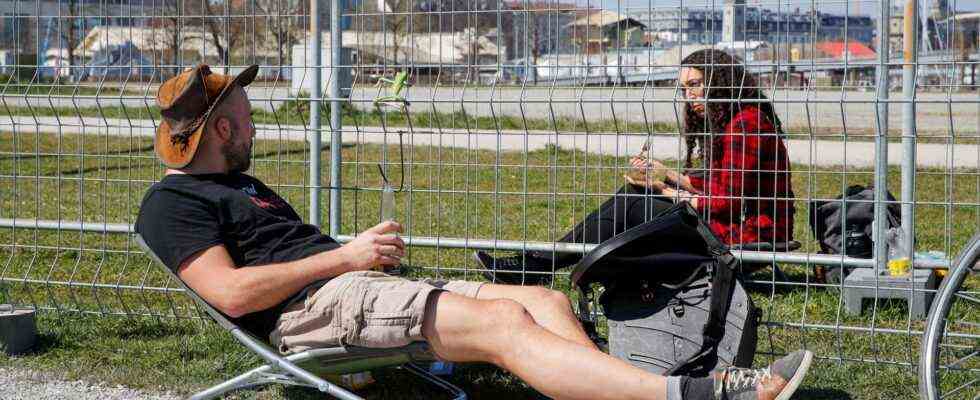As of: December 26th, 2021 9:00 a.m.
Much is reminiscent of the Brexit dispute: smaller partner insists on independence from the allegedly overpowering EU. Negotiations on a framework agreement between Switzerland and the EU are stalling. That has consequences.
The long-planned agreement between the EU and Switzerland has reached a dead end. The negotiations have been suspended since last May. An informal two-person summit in November between the Vice President of the EU Commission, Maros Sefcovic, and the Swiss Foreign Minister Ignazio Cassis also ended with no result.
After the meeting, Sefcovic demanded a binding schedule from Switzerland. It must be available soon. The government in Bern, on the other hand, does not want to negotiate the sensitive issue until after the federal elections in autumn 2023. Brussels is too late.
The price of the benefits
Of course, it’s also about money. After a heated debate, the Swiss parliament approved 1.3 billion francs, the equivalent of 1.2 billion euros, as the “cohesion billion”. According to a study by the Bertelsmann Stiftung, no other country will benefit as much from the European single market as Switzerland without being a member. The money from Switzerland is intended to compensate for the advantages of the domestic market. The EU had been waiting for this since 2012.
From a Swiss point of view, one is even with the one-off payment. In Brussels, one sees it very differently. Switzerland should regularly transfer money to the EU coffers. After all, Switzerland will benefit permanently from the domestic market. From an economic point of view, a break with the EU can hardly be in Switzerland’s interest.
Fear for sovereignty
The EU is Switzerland’s most important trading partner. For this reason alone, many Swiss fear a loss of their sovereignty. They are afraid that EU citizens could benefit from the Swiss social system. The unions, in turn, fear wage dumping by foreign workers.
The question of whether Switzerland has to adopt EU law on trade issues and recognize the jurisdiction of the European Court of Justice in Luxembourg (ECJ) is even more delicate. From Brussels’ point of view, this is an indispensable prerequisite for participating in the internal market. This debate is also reminiscent of the endless negotiations between the EU and Great Britain.
First consequences in the education sector
The federal universities are now feeling the first effects of the alienation between the EU and Switzerland. In “Europe Horizon”, the largest research funding program in the world, Switzerland is now only an “associated third country”.
Detlef Günther is Vice President for Research at the Swiss Federal Institute of Technology in Zurich (ETH). He fears that the universities will lose touch with the European scientific community and reminds that ETH researchers have received a total of more than 500 million Swiss francs from the European Research Council since 2007 to advance their projects:
It is incredible to me that we at ETH are excluded from a large part of these funding programs. As a result, Switzerland is becoming less attractive as a place to work for top researchers. Or to put it simply: We are no longer allowed to play in the Champions League and have to be satisfied with the Swiss league. Personally, I very much regret this development. ”
Bitter balance
The Swiss Roger de Weck has spent his entire journalistic life studying the relationship between the Confederates and Germany and France. He was a correspondent in Paris, editor-in-chief of “Zeit” in Hamburg and from 2011 to 2017 Director General of Swiss Broadcasting (SRG / SSR). The visiting professor at the College of Europe in Bruges draws a bitter conclusion:
After two world wars and the Holocaust, it was evident that Europe had to reorganize itself in the form of the EU. But Switzerland never wanted to take part in the reorganization of its own continent: because it was spared from the world wars; and because the establishment thinks in a purely mercantile manner like the Brexit British. So Switzerland basically has no relationship with the European Union. The EU is by far our best neighbor in the entire history of the Confederation.
Switzerland, says de Weck, now knows “neither in nor out” and finds it unfair that the EU is now “negotiating as hard as Swiss diplomacy has ever done”.
The proponents speak up
There is now a countermovement to Swiss euroscepticism. The initiative “Operation Libero” wants to bring movement to the deadlocked negotiations with a referendum. There is not yet a date for a referendum.
In the meantime, the four-party coalition in Bern is fighting hard to find the right strategy for the EU. The next meeting between Commission Vice Sefcovic and Foreign Minister Cassis was planned for mid-January at the World Economic Forum in Davos. But because that was canceled, a new appointment is now being sought.

